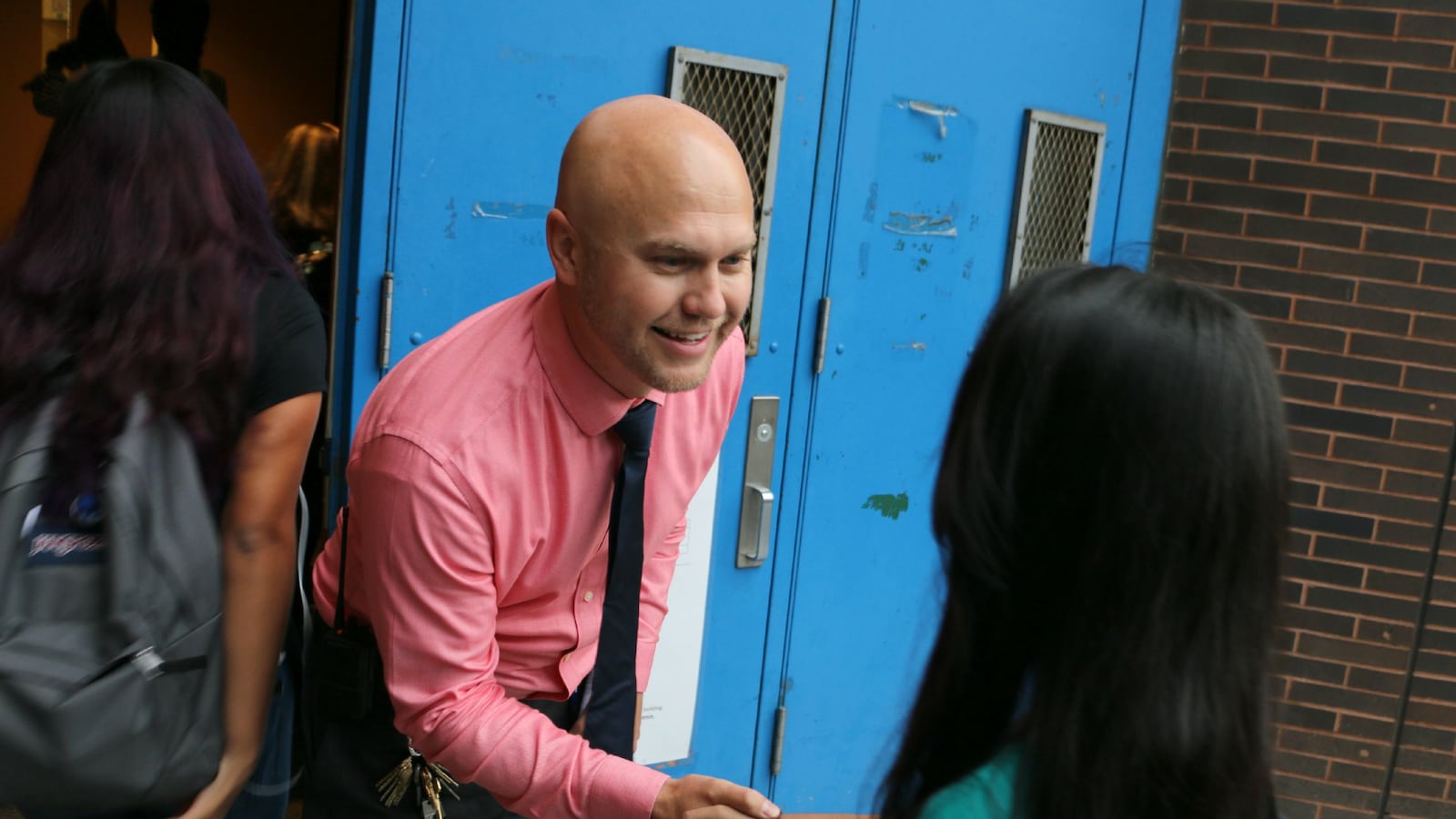The city awarded $6.9 million in performance-based bonuses to hundreds of principals and assistant principals last year, continuing a Bloomberg-era practice inspired by the corporate world.
But in a significant shift, the bonuses were based largely on superintendents’ assessments of principals rather than school ratings, which had been driven largely by student test scores.
More than 330 principals received bonuses, which ranged from $25,000 for 10 principals with the highest evaluation ratings to $7,000 for those with lower scores. Nearly 660 assistant principals earned bonuses ranging from $12,500 to $3,500, which were based on their principals’ ratings.
Former Mayor Michael Bloomberg strongly pushed merit pay for the city’s educators, insisting that competition and an emphasis on results would boost student achievement. (One local study found otherwise). Mayor Bill de Blasio and his schools chief, Carmen Fariña, have shifted the focus to collaboration among educators and incentive programs that tie extra pay to extra responsibilities.
But principal union officials suggested that scrapping any financial incentive after so many years would upset some school leaders.
“It’s been a popular thing with those members who have been able to get it,” said Mark Cannizzaro, executive vice president of the city’s Council of School Administrators and Supervisors.
Last year’s bonuses were the first to be based on principals’ evaluations instead of schools’ progress reports, which were overhauled under de Blasio. The bonuses went to principals whose 2013-14 school year evaluation ratings, which are based on school reviews and test scores, landed in the top 20 percent citywide. Those principals and their assistant principals were then divided into four tiers: the top 1 percent earned the largest award, while the top 11 to 20 percent got the smallest.
The bonuses, which also go to some administrators who are not based in schools but are members of the principals union, tend to be disbursed in the spring based on results from the previous school year. The education department told principals this week that it would continue to use their evaluation ratings as the basis for the bonuses it gives out this year, though it has not yet said which principals qualify.
The incentives began under an agreement between Bloomberg and the principals union, where officials were wary of spurring competition among members but nonetheless signed on. His administration also experimented with a bonus program for teachers at some schools based on student performance, but ended it after research showed that it did not raise students’ test scores.
The principal bonuses are built into the city-union collective bargaining agreement, but the city ultimately decides how to award them, Cannizzaro said. Still, the union works with the education department each year to determine how best to distribute the bonuses, he added.
The current system is tied to principals’ evaluations, which have been based 60 percent on review visits by superintendents and their deputies, and 40 percent on student-performance measures such as test scores and graduation rates. However, new state regulations have altered the student-performance portion of teacher and principal evaluations, which could impact next year’s bonus system.
“Depending on what ultimately becomes the evaluation system,” Cannizzaro said, “it might have to change.”
The city’s Independent Budget Office has repeatedly proposed eliminating the incentives as a possible way for the city to save an average of $6 million annually. It has noted that the teacher merit-pay program was discontinued, and suggested studying whether the principal bonuses impact behavior — for example, by encouraging principals to stay on the job.
An education department spokesman could not say whether the bonuses have had any particular effect on administrators.
David Bloomfield, an education professor at the CUNY Graduate Center and Brooklyn College, said it was unclear whether the bonuses were meant to raise student performance, aid in principal retention, or simply reward effective leaders.
“The question is, what’s the intended benefit?” he said. “And is it having that intended benefit?”
The city’s latest contract with the principals union added an additional incentive program, which lets high-performing principals and assistant principals earn $10,000 to $25,000 annually for taking on expanded roles. The teachers contract included a similar program.
In interviews, principals expressed mixed views about the bonuses.
Some thought the shift to evaluation-based rewards would be more fair than ones tied to the former school progress reports, which were determined largely by test scores and graduation rates. But others said that superintendents’ ratings can sometimes seem arbitrary.
Evan Schwartz, principal of Alfred E. Smith High School in the South Bronx, said the bonuses did not motivate him, regardless of what they are based on. He said the odds seemed stacked against principals who took on struggling schools, adding that he did not expect to receive a bonus this year even though he helped remove Smith from the state’s list of lowest-performers.
“Bonuses have never been in my mind,” he said, “because I always felt the system was rigged.”
Ron Link, principal of the Theater Arts Production Company School in the Bronx, said the possibility of a bonus does not inspire him to work any harder. However, he said it’s still a nice treat for a job well done.
“It’s more like aspirational ice cream,” he said, “than it is a motivational carrot.”

